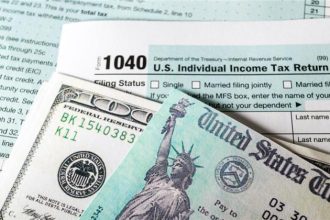Credit Sesame explains how student loan collections could affect your credit score, what steps you may want to consider, and how to stay on top of your financial future.
Student loan collections resume in 2025
Federal student loan collections are back. As of May 5, 2025, the U.S. Department of Education is resuming collections on defaulted loans for the first time since the pandemic-era pause began in 2020. For the 5.3 million Americans currently in default, this shift could have significant consequences, particularly for their credit scores.
Although payments officially resumed in October 2023, borrowers were given a 12-month “on-ramp” period, which extended through September 2024. During that time, missed payments were not reported to credit bureaus, and collections were paused. That cushion is ending early for those already in default. As of May 2025, active collections — including wage garnishment and tax refund seizures — are starting again.
This is the formal end of a major COVID-era relief policy that had protected millions of borrowers from aggressive debt collection. The Washington Post reports that this change could impact nearly a quarter of all federal student loan holders.
One tool being reinstated is the Treasury Offset Program, which allows the federal government to collect overdue student loans by seizing tax refunds, garnishing wages, and reducing Social Security payments. Business Insider confirms that garnishments may begin this summer for borrowers who take no action.
According to TIME reporting, the renewed collection effort reflects a policy shift under the Trump administration, which has prioritized fiscal accountability and a return to pre-pandemic enforcement.
Credit scores may take a hit
Once collections resume, many borrowers in default may experience a significant drop in their credit scores. According to the Federal Reserve Bank of New York, millions could experience major declines once missed payments are reported to the credit bureaus.
- Borrowers with excellent credit (above 760) may lose over 170 points.
- Those in the prime range (660–719) could see drops of 140 to 160 points.
- Subprime borrowers may lose an average of 87 points.
A change of that magnitude can have a dramatic impact on your financial standing, making it more difficult or expensive to access credit.
Default status may delay major financial goals
Student loan defaults don’t just affect borrowing. They may also interfere with efforts to:
- Rent an apartment or home.
- Secure a car loan or mortgage.
- Apply for new credit cards.
- Qualify for jobs that require a review of your credit history.
Since credit is used in so many areas of financial and personal life, the effects of default can extend far beyond the loan itself.
What can borrowers do now?
There are ways to resolve defaulted loans and potentially reduce the long-term impact on your credit.
- Loan rehabilitation. This program allows borrowers to make nine voluntary, on-time monthly payments over a period of ten months. Once completed, the default status is removed from your credit report; however, previous late payments may still appear. Business Insider explains that this option may help protect borrowers from garnishment if acted on soon.
- Loan consolidation. Borrowers can combine their defaulted loans into a new Direct Consolidation Loan. This process helps to get you out of default, but does not erase the default mark from your credit report.
- Income-driven repayment (IDR). Borrowers may apply for plans based on income and family size. These plans do not remove a default, but they may help prevent future delinquencies and reduce financial pressure.
Check your loan status and act quickly
If you’re unsure about the status of your loan, begin by logging into StudentAid.gov to check your current status. If your loan is already in default, your servicer can walk you through next steps, including options like rehabilitation or consolidation.
NPR reports that the Department of Education plans to begin sending garnishment notices this summer. Borrowers will have a 30-day window to take action before those collection efforts begin.
Stay alert as collections resume
As collections restart, it’s a good idea to keep an eye on your credit report. Changes to your loan status, new delinquencies, or defaults could begin appearing as soon as servicers resume reporting. Reviewing your credit reports regularly can help you identify issues early and dispute any inaccuracies.
You’re entitled to one free annual report from each of the three major bureaus, Experian, Equifax, and TransUnion, through AnnualCreditReport.com. During periods of financial stress or federal policy changes, free access may be extended, so check the site for updates.
You may also like to try Sesame Grade for a comprehensive overview of your credit score, including the factors behind the numbers and clear actions to reach your goals.
What student loan collections may mean for you
Student loan collections are resuming, and for millions of borrowers, this could result in a significant decline in credit score and reduced access to financial opportunities. Defaults may affect not just loans and credit cards, but also housing, employment, and insurance options.
If your loan is in default, there may still be time to act before collections begin. Check your status, explore repayment or rehabilitation options, and stay alert for any notices from your loan servicer. Taking early steps could help limit long-term financial consequences.
If you found Student loan collections resumed: What it may mean for your credit score interesting you may like,
Disclaimer: The article and information provided here are for informational purposes only and are not intended as a substitute for professional advice
Read the full article here
















